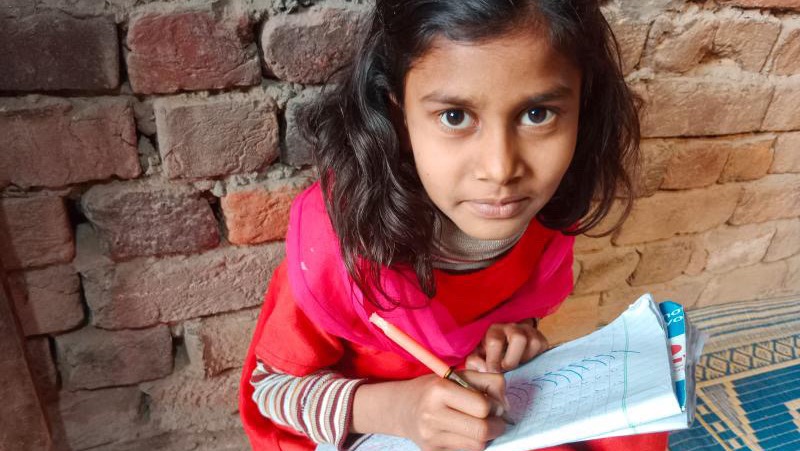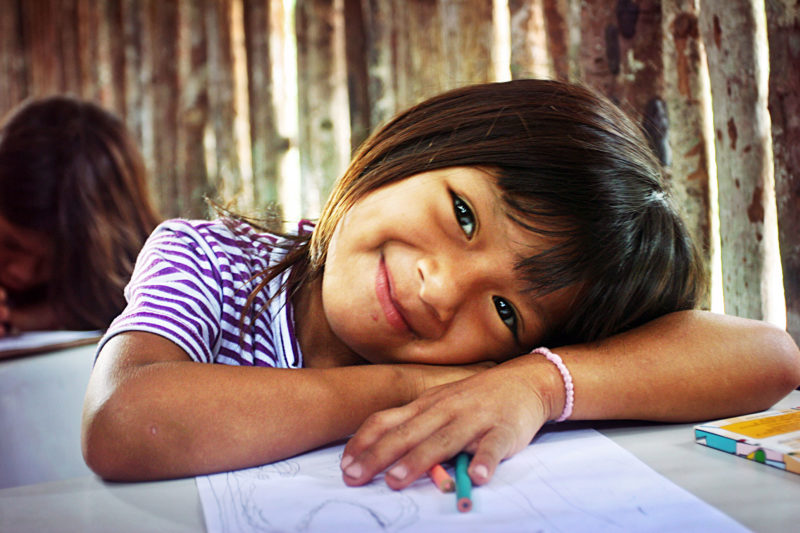Empowering Tomorrow: How Your Support Changes Children’s Lives
Your support changes children’s lives by providing them with guidance, resources, and opportunities that empower them to overcome challenges and thrive. Through mentorship and positive role modeling, you inspire confidence, foster essential life skills, and encourage goal pursuit. Additionally, advocating for access to vital services such as education, healthcare, and housing ensures that at-risk youth have the support they need to succeed.

What are the prevalent risks faced by children?
Children across the United States face a myriad of risks that can significantly impact their well-being and development. One prevalent risk is emotional abuse, as revealed by the 2021 CDC Youth Risk Behavior Survey, which indicated that 55% of high school students endure emotional abuse at home. This form of mistreatment can have profound psychological effects, leading to issues such as low self-esteem, anxiety, and depression. Additionally, approximately 20% of high school students face community violence, exposing them to physical harm, trauma, and a heightened sense of fear and insecurity in their surroundings. Furthermore, 3% of students grapple with housing instability, which can result in instability, uncertainty, and disruptions in education and social relationships.
Other prevalent risks include substance abuse and addiction, with many children exposed to drugs and alcohol either within their households or communities. This exposure can lead to addiction, health problems, academic struggles, and involvement in criminal activities. Moreover, children may experience neglect, either due to parental substance abuse, mental health issues, or inadequate caregiving, resulting in physical, emotional, and educational neglect. Additionally, exposure to adverse childhood experiences (ACEs), such as domestic violence, parental incarceration, or parental divorce, can increase the likelihood of negative outcomes in adulthood, including chronic health conditions, mental illness, and substance abuse.
Furthermore, children from marginalized communities, including low-income households and minority groups, often face systemic barriers and discrimination that exacerbate their risks. These barriers may include limited access to quality education, healthcare, housing, and supportive services, perpetuating cycles of poverty and inequality.
Overall, the prevalent risks faced by children in the United States are diverse and multifaceted, encompassing various forms of abuse, violence, neglect, substance abuse, and socio-economic challenges. Addressing these risks requires comprehensive strategies that prioritize the safety, well-being, and rights of all children, regardless of their background or circumstances.

How can mentors, schools, and communities contribute to the success of at-risk youth?
Mentors, schools, and communities collectively contribute to the success of at-risk youth through various means. Mentorship programs offer invaluable guidance and support, fostering meaningful connections and helping youth navigate challenges. Schools play a crucial role by providing targeted support services such as counseling and tutoring, creating a safe and inclusive environment that promotes engagement and learning. Communities can further enhance support by organizing extracurricular activities and vocational training, fostering a sense of belonging and purpose. Collaboration with social services ensures comprehensive interventions, while early intervention programs identify and address issues promptly. Promoting positive peer relationships, individualized education plans, and parental involvement are also key strategies. Ultimately, by combining efforts and resources, these entities create a supportive ecosystem that empowers at-risk youth to overcome obstacles and achieve success.
What are the benefits of working with at-risk youth, and how can individuals support their well-being and development?
Working with at-risk youth offers numerous benefits for both the individuals themselves and the broader community. By providing support and guidance, individuals can significantly impact the well-being and development of at-risk youth in several ways.
Firstly, supporting at-risk youth can lead to positive outcomes for the individuals themselves. Engaging with at-risk youth allows individuals to make a meaningful difference in someone’s life, fostering a sense of fulfillment and purpose. The opportunity to witness the growth and progress of at-risk youth can be incredibly rewarding, reinforcing the importance of their efforts in making a positive impact. Additionally, working with at-risk youth provides individuals with valuable experiences and skills, such as empathy, communication, and problem-solving, which can enhance personal and professional development.
Moreover, supporting at-risk youth contributes to the overall well-being and development of the youth involved. By providing mentorship, guidance, and resources, individuals help at-risk youth navigate challenges and build resilience. Positive relationships with caring adults can have a profound impact on at-risk youth, fostering a sense of trust, belonging, and self-worth. Additionally, access to supportive services and opportunities for skill-building and personal growth can empower at-risk youth to overcome obstacles and achieve their full potential.

How Your Support Changes Children’s Lives
Furthermore, supporting at-risk youth benefits the community at large. By investing in the well-being and development of at-risk youth, individuals contribute to the creation of a healthier, safer, and more inclusive community. When at-risk youth receive the support they need to succeed, they are less likely to engage in risky behaviors or become involved in criminal activities, leading to reduced crime rates and improved public safety. Additionally, empowered at-risk youth are more likely to become productive members of society, contributing to the social and economic prosperity of their communities.
Individuals can support the well-being and development of at-risk youth in several ways. One effective approach is through mentorship and positive role modeling. By serving as mentors and positive role models, individuals can provide guidance, support, and encouragement to at-risk youth, helping them build confidence, develop essential life skills, and pursue their goals. Additionally, individuals can advocate for and support access to essential services and opportunities for at-risk youth, such as education, healthcare, housing, and employment. By raising awareness, mobilizing resources, and collaborating with community stakeholders, individuals can help ensure that at-risk youth have the support they need to thrive.
In conclusion, working with at-risk youth offers numerous benefits for individuals, at-risk youth themselves, and the broader community. By providing support, guidance, and opportunities for growth, individuals can make a meaningful difference in the lives of at-risk youth, contributing to their well-being, development, and future success.
Final thought
By investing in their well-being and development, you contribute to the creation of safer, more inclusive communities. Empowered at-risk youth are less likely to engage in risky behaviors or criminal activities, leading to reduced crime rates and improved public safety. Ultimately, your support makes a tangible difference in the lives of at-risk youth, helping them realize their potential and become productive members of society.
read more: A good world: Innovative approaches to contributing to children’s well-being



